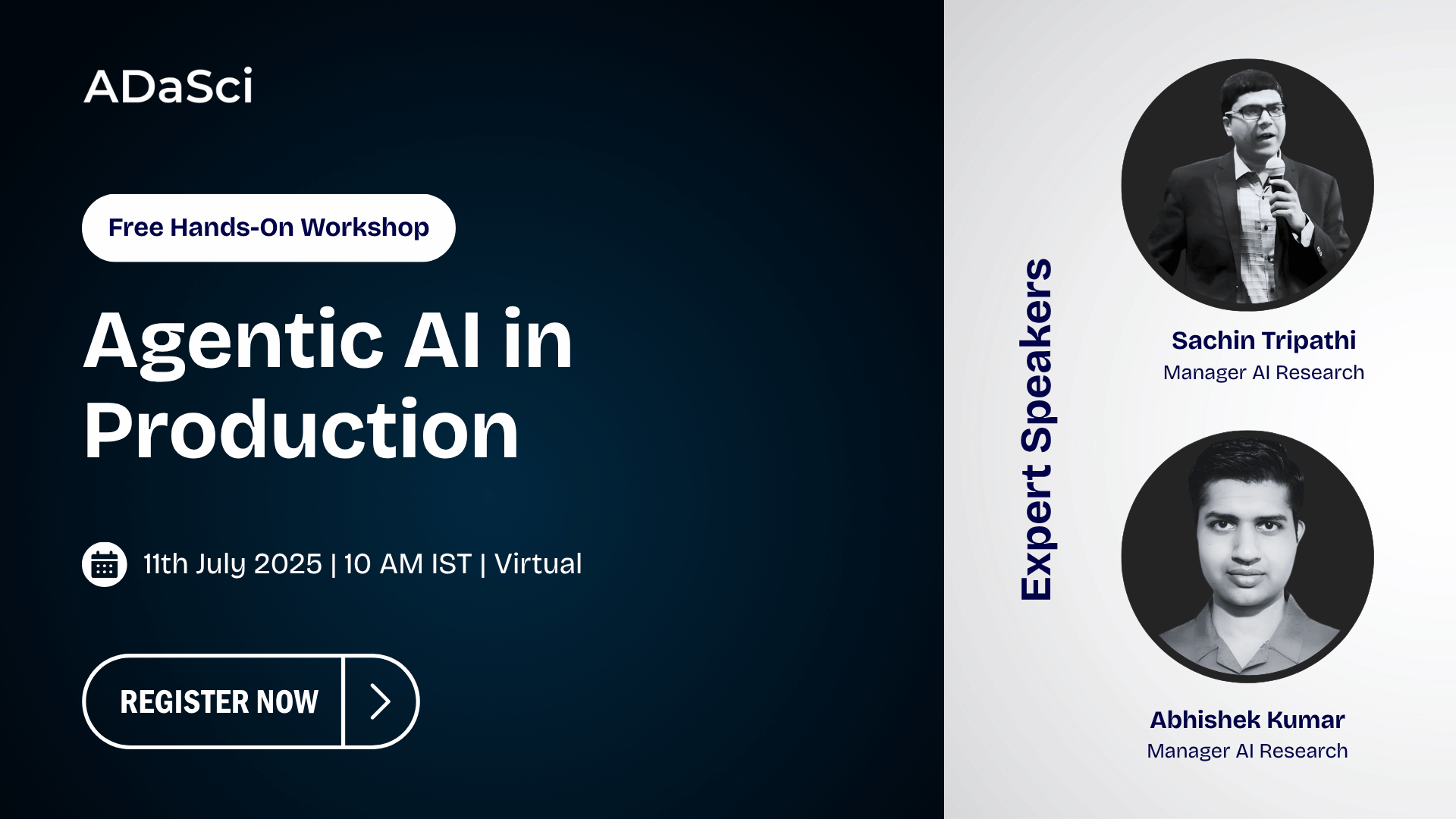From Scarcity to Abundance: Synthetic Dataset Generation in Agriculture

Explore more from ADaSci
The Machine Learning Developers Summit (MLDS) 2024 in Bengaluru bore witness to a groundbreaking presentation by Anubhav Srivastava, Principal Engineer at iMerit. With a rich background in Robotics, Computer Vision, and Deep Learning, Anubhav is currently spearheading efforts in developing ML solutions for automating data annotation pipelines. His talk, titled “Leveraging Generative AI with Transformers and Stable Diffusion for Rich Diverse Dataset Synthesis in AgTech,” delved into the realm of artificial intelligence and its application to address data deficiency in agriculture.
Addressing Agricultural Challenges Through Generative AI
Anubhav commenced his presentation with a warm greeting, acknowledging the burning topics encapsulated in the title of his research paper. He quickly set the stage by introducing himself as an engineer in the ML team at iMerit, expressing his enthusiasm for presenting a novel approach to tackling data scarcity in AgTech.
The Evolution of Agriculture Through Digital Transformation
Highlighting the recent digital transformation in the agricultural domain, Anubhav emphasized the integration of advanced technologies to meet challenges such as optimizing crop yields and ensuring sustainable farming practices. Central to this revolution is the role of artificial intelligence, particularly generative models, which hold immense promise in transforming how data synthesis is approached in the agriculture sector.
Unveiling the Research Paper
Anubhav’s talk was centered around a research paper that explored leveraging generative AI, transformers, and stable diffusion to address the fundamental issue of data deficiency in agriculture. He clarified that while the focus was on AgTech, the methodology could be extended to other domains as well. The overarching goal was to present a novel approach to generating rich and diverse datasets, a crucial aspect of training machine learning models.
Challenges in AgTech and the Motivation Behind the Exploration
Drawing from iMerit’s experience in working on various agriculture-based projects, Anubhav highlighted the common challenge of data scarcity. He explained that existing open-source datasets often fall short in terms of quality, segmentation, and labeling. Additionally, there’s a lack of diversity in the available datasets, posing a significant hurdle in developing robust machine-learning models for agriculture.
Real-world Examples and Use Cases
Anubhav delved into the motivation behind their exploration, citing real-world scenarios where slow turnaround times, lack of data coverage, and persistent security issues hindered progress in AgTech. He underscored the need for a synthetic dataset generation pipeline that could mimic real-world agricultural scenarios. The aim was to address challenges related to data deficiency and diversity.
Exploring the Landscape of Generative AI in AgTech
Anubhav provided a context for the exploration by inviting those with previous experience in the AgTech domain to reflect on the critical issue of data deficiency. He shared insights into how synthetic datasets generated through generative AI could offer better control over data quality. The exploration wasn’t limited to AgTech, as Anubhav highlighted its potential applications in simulating various combinations of crops, perspectives, and density levels.
Leveraging Stable Diffusion for Synthetic Dataset Generation
Anubhav elucidated the methodology employed in their research. They utilized stable diffusion, an open-source tool known for providing better control over parameters, model architecture, and training loops. The choice was motivated by the tool’s documentation, active community support, and the goal of making the experiment practical and replicable on consumer-grade graphics cards.
Transforming Open-Source Data into Realistic Scenarios
The core of Anubhav’s approach lay in the synthesis of a diverse dataset. By combining open-source data with stable diffusion, the team aimed to address data deficiency and diversity. The power of generative AI became evident as it created synthetic data that not only mimicked the original dataset but also introduced novel elements, showcasing its potential to enhance the richness and diversity of training data.
Validation through Model Training and Quantization
To validate their approach, Anubhav’s team trained a semantic segmentation model using both the original and synthetic datasets. The results, as depicted in training graphs, showcased that the addition of synthetic data significantly improved model convergence and performance. Utilizing metrics such as Mean IoU (Intersection over Union), the team demonstrated that the model trained on synthetic and original data outperformed the one trained solely on original data.
Realistic Results and Broader Impact of the Experiment
Anubhav concluded by presenting tangible results, comparing images from the test dataset, human-annotated data, and models trained on original versus synthetic plus original data. The synthesized data proved its worth by enhancing pixel accuracy, refining boundaries, and reducing noise in the model’s predictions. The success of the experiment not only addressed data deficiency in AgTech but also showcased the broader impact of generative AI, transformers, and stable diffusion in revolutionizing data synthesis across various domains.
Conclusion
In closing, Anubhav Srivastava’s presentation at MLDS 2024 provided a glimpse into the transformative power of generative AI in addressing critical challenges in AgTech. His exploration of leveraging transformers and stable diffusion demonstrated not only technical prowess but also a commitment to solving real-world problems. As the industry continues to evolve, Anubhav’s innovative approach serves as a beacon, guiding developers and technologists toward impactful solutions that transcend the boundaries of agriculture.







